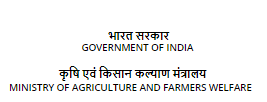CISH-Ambika
Background:
Mango is not only the most important fruit crop of India which leads in production and it is a source of livelihood for millions of farmers. It has its own role in livelihood support and also in export. India exports mango to over 40 countries worldwide. India conquers first place in mango production of the world and accounts for almost half of the global production and area. The area under mango cultivation is 2,312 thousand ha and with the production around 15.03 million tons. This contributes 40.48% of the total world mango production. There are nearly 1000 mango varieties in India, however, only 3% of these are having predominance in the trade and export business. There are about 20 varieties grown commercially. Most of the Indian mango varieties have specific eco-geographical requirements for optimum growth and fruiting. Most of these commercial varieties are alternate bearers. Changing climatic conditions are likely going to negatively affect mango production by limiting vegetative growth, flowering and fruit set, fruit growth, and fruit quality. Mango has an established export market and poses bright opportunities for export in the international market, whether in fresh or processed forms. Therefore, development of mango hybrids having desirable characteristics viz., regular and precocious bearing, dwarfiness, high percentage of pulp, fibreless flesh, large fruits with red blush, good keeping quality and wider adaptability is the need of hour:
Technology Details:
Mango hybrid Ambika is developed by crossing between Amrapali and Janardan Pasand. Ambika is a regular bearer, high-yielding, late in maturity. Medium-sized trees and plants are semi-vigorous. The fruit color is bright yellow with an attractive dark red blush on yellow colored fruit peel, and the pulp is dark yellow, firm with scanty fibre. Fruits weigh about 300-350g, TSS is 21°B and Ambika hybrid is rich in mangiferin content. It takes 2-3 years to get in to bearing stage and takes 120-130 days from flowering to fruit maturity. It yields about 80 kg/plant by about 10 years of planting under improved cultural practices. Ambika is suitable for table purposes and is well accepted in the market because of its regular bearing, high-yielding, and attractive fruits with excellent quality. The hybrid has potential for both internal and export markets because of its attractive fruit color. It has wider adoptability, suitable for all mango growing regions in both subtropical and tropical conditions except in high rainfall areas. Ambika is suitable for cultivation in mango growing areas of the country viz. Uttar Pradesh., Bihar, Madhya Pradesh, Andhra Pradesh, Karnataka, Gujarat, Maharashtra and Tamil Nadu.


